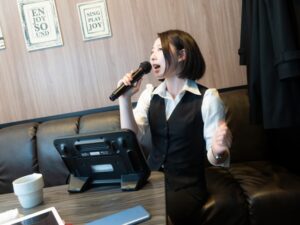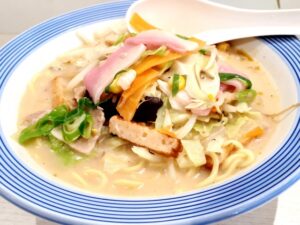
If you have any questions, ask them for free! ➡ Japanese Question Form
キーフレーズ集 Key phrase
キーフレーズ
〇〇と申します。
My name is
普通形
〇〇です。
ポイント
自分の名前を言うときは、〇〇ですでも意味はわかります。でも、目上の人に対しては、「〇〇と申します」と言う方がいいです。
When
you say your own name, you can understand the meaning of “〇〇です.
However, when addressing superiors, it is better to say, “〇〇と申します.
キーフレーズ
ご無沙汰しております。
It’s been a while.
普通形
久しぶり。
ポイント
お久しぶりです、より丁寧な言い方です。電話やメールでも使えます。
This is a more polite way of saying, “It’s been a while. You can use it on the phone or in an email.
キーフレーズ
こちらは〇〇さんです。
This is Mr./Ms./Professor…
普通形
この人は〇〇さんです。
ポイント
人を紹介するときは、「この人は〇〇さんです」ではなく、「こちらは〇〇さんです」と「こちら」を使うようにする方が良いです。
When introducing people, it is better to use the word “こちら” instead of “この人は〇〇さんです”, as in “こちらは〇〇さんです”.
キーフレーズ
〇〇に越して参りました、〇〇と申します。
My name is…, and I moved in…
普通形
引っ越してきた、〇〇です。
ポイント
「越して参りました」 = 「越してきた」といってもいいですが、「参りました」を使う方が丁寧です。
“You can say “越してきた”, but it is more polite to use “I越して参りました”.
キーフレーズ
お世話になりました。
Thank you so much.
普通形
ー
ポイント
「お世話になりました」は、色々としてもらったことに対して、感謝の気持ちを表す言葉です。「ありがとうございました」と組み合わせて使うことが多いです。
The phrase “お世話になりました” is a way to express gratitude for something that has been done for you. “It is often used in combination with “ありがとうございました
キーフレーズ
おめでとうございます。
Congratulations.
普通形
おめでとう
ポイント
「おめでとうございます」の前に、入学、卒業、結婚など、祝う内容をつけて使うことも多いです。
“おめでとうございます” is often preceded by a congratulatory message, such as enrollment, graduation, or marriage.
キーフレーズ
お邪魔します。
Pardon me.
普通形
ー
ポイント
「お邪魔します」は、人の家に上がるときに使う言葉で、「失礼します」と同じ意味です。軽くお辞儀をしながら言うことが多いです。
“お邪魔します” is a word used when going up to a person’s house and has the same meaning as “失礼します”. I often say it while bowing lightly.
キーフレーズ
少々お待ちください。
Just a moment please.
普通形
ちょっと待って下さい。
ポイント
電話を誰かに代わってもらうときには、必ずこの言葉を言いましょう。
Always say this word when you have someone take over the phone.
キーフレーズ
〇〇をお願いします。
…, please.
ポイント
何かを注文するときに、「お願いします」を省略しても失礼になりませんが、「お願いします」をつけたほうが丁寧です。
It is not rude to omit “お願いします” when ordering something, but it is more polite to add “お願いします”.
キーフレーズ
〇〇してもらえますか。
Can I get you… to do this for me?
普通形
〇〇してくれますか。
ポイント
「〇〇してもらえますか」は、自分がお客の立場の時など、依頼内容を聞いてもらえる前提の時に使います。
When you are in the position of a customer, you can use the phrase “〇〇してもらえますか” when you assume that they will listen to your request.
キーフレーズ
〇〇したいんですが…。
I am interested in …ing …and
普通形
〇〇したいんだけど
ポイント
「〇〇したいけれど、どうしたら良いかがわからない」と言うような時によく使います。
We often use it when we say “I want to do it, but I don’t know what to do”.
キーフレーズ
〇〇していただけますか。
Would you mind… doing this for me?
普通形
〇〇してくれますか。
ポイント
「〇〇してもらえますか」の丁寧な言い方です。相手や場所を選ばずに使える便利な表現です。
It is a polite way of saying “〇〇してもらえますか” It is a convenient expression that can be used regardless of the person or place.
キーフレーズ
〇〇をいただけますか。
Can I have…
普通形
〇〇をもらえますか。
ポイント
何かを欲しいときに、「〇〇をもらえますか」の丁寧な表現です。
When you want something, it is a polite expression of “〇〇をもらえますか”
キーフレーズ
〇〇してもらえると、ありがたいんですが…。
It would be great if I could get you to… for me.
普通形
〇〇してくれると嬉しいんだけど。
ポイント
相手に少し格好悪いなと思うことを頼む時や、断られるかもしれないなと思ってる時に使います。
Use this when you are asking someone to do something that you think is a little uncool, or when you think they might refuse.
キーフレーズ
〇〇はどちらでしょうか。
Could you tell me where is?
普通形
〇〇はどこですか。
「どちらでしょうか」 は 「どこですか」の丁寧な表現です。
“どちらでしょうか” is a polite expression of “どこですか”.
キーフレーズ
〇〇までにお願いできますか。
Can I have it done by…?
普通形
〇〇までにやってほしいです。
ポイント
いつまでにやってほしいけれども可能かどうか尋ねる表現です。
This is an expression to ask if it is possible to have something done by a certain date.
キーフレーズ
〇〇はいらっしゃいますか。
Is … in?
普通形
〇〇はいますか。
ポイント
探している人がいるかどうかを尋ねる表現です。
An expression to ask if someone is looking for you.
キーフレーズ
〇〇はどうでしょうか。
How about …?
普通形
〇〇はどうですか。
ポイント
空席や日程など、何かの状況を尋ねるときの表現です。「〇〇はどうですか」と同じ意味ですが、少しだけ丁寧な表現になります。
This expression is used when asking about the status of something, such as availability of seats or dates. It has the same meaning as “〇〇はどうですか” but is a bit more polite.
キーフレーズ
ちょっとわからないところがあるんですが…。
I’m not really sure about this.
普通形
わからないんですが…。
ポイント
何かに対して、自分で考えてもわからないので聞きたい、と言う時に使います。「わからないんですが」よりも間接的な表現なので、少し丁寧な印象になります。
It is used when you want to ask about something because you don’t know what it is. This is a more indirect expression than “わからないんですが” so it gives a more polite impression.
キーフレーズ
〇〇させていただきたいんですが。
Could I …?
普通形
〇〇したいんですが。
ポイント
何かをする許可をもらうときの丁寧な表現です。
This is a polite way to ask for permission to do something.
キーフレーズ
ここ、よろしいですか。
Is this seat free?
普通形
ここ、いいですか。
ポイント
空いてる席に座ったりするときに、隣の人などに許可を求める表現です。
This is an expression used to ask for permission to sit down in an empty seat, such as a neighbor’s.
キーフレーズ
〇〇ても大丈夫ですか。
Is it OK if I …?
普通形
〇〇てもいいですか。
ポイント
問題はありませんか、都合が悪くありませんか、と言う意味になります。
It means, “Is there any problem or inconvenience?
キーフレーズ
〇〇はここでいいでしょうか。
This is where…, right?
普通形
〇〇はここでいいですか。
ポイント
場所を確認して許可を求めるときに使います。
This is used to confirm a location and ask for permission.
キーフレーズ
〇〇までお願いします。
Please go up to …
普通形
〇〇まで行って欲しいです。
ポイント
タクシーで行き先等を言うときに使う便利な表現です。
This is a useful expression to use when telling a cab where to go.
キーフレーズ
どうぞ。
Please.
ポイント
座席を譲ったり、ドアを開けてあげたり、誰かに何かを進めるときに使えます。
You can use it to give up your seat, open a door for someone, or advance someone something.
キーフレーズ
〇〇でお願いします。
… please.
普通形
〇〇でいいです。
ポイント
自分の希望の物や方法を伝えるときに使います。
It is used to communicate what you want and how you want it.
キーフレーズ
〇〇もいらっしゃいませんか。
Might … be interested in coming as well?
普通形
〇〇も来ませんか。
ポイント
誘う相手の名前に、「もいらっしゃいませんか。」と言うと、「〇〇も来ませんか」と同じ意味ですが、より丁寧な表現になります。
If you add the name of the person you are inviting to the party and say, “もいらっしゃいませんか。 which means the same thing as “〇〇も来ませんか。
キーフレーズ
〇〇はちょっと…。
It will pass on…
普通形
〇〇はいりません。
ポイント
何かを勧められたときに、柔らかく断る言い方です。「要りません」などと、はっきり断るよりも、相手のことを考えた表現です。
It is a soft refusal when something is recommended. It is an expression that thinks about the other party rather than clearly refusing, such as “要りません”
キーフレーズ
結構です。
No thank you.
普通形
いりません。
ポイント
はっきりと断りたいときに使う表現です。「要りません」よりも丁寧な言い方です。
This is an expression used when you want to refuse clearly. It’s more polite than “要りません”
キーフレーズ
ちょうどその日は何々がありまして…。
Sorry, I’ve already got something lined up for just that day.
普通形
その日は行けません。
ポイント
誘いを断るときは、誘ってくれた相手のことを考えて、なるべく具体的な理由を言う方が良いでしょう。「その日はいけません」だけでは、少し失礼な印象になってしまいます。
When you decline an invitation, it is better to think about the person who invited you and give a specific reason as much as possible. Just saying “その日はいけません” will give you a slightly rude impression.
キーフレーズ
それはちょっと困るんですけど…。
That’s a bit inconvenient…
普通形
それはできません。
ポイント
相手に自分が困っていると言う気持ちを示し、間接的に苦情を表現することで、丁寧な表現になります。
By showing the other person that you are in trouble and indirectly expressing your complaint, you will be polite.
キーフレーズ
もう少し〇〇にしてもらえませんか。
Um, would you mind being a little more …?
普通形
もう少し〇〇にしてください。
ポイント
どうしてほしいかを頼むことで間接的な表現になり、苦情を直接よりも丁寧になります。「〇〇していただけませんか」と言うと、さらに丁寧です。
Asking what you want is an indirect expression and makes your complaint more polite than direct. It’s even more polite when you say, “〇〇していただけませんか”
キーフレーズ
もう一度おっしゃっていただけますか。
Would you mind telling me once again?
普通形
もう一度言ってくれますか。
ポイント
「もう一度言ってもらえますか」の丁寧な表現です。初対面の人には、丁寧な表現を使う方がいいです。
It is a polite expression of “もう一度言ってもらえますか” For those who meet for the first time, it is better to use polite expressions.
キーフレーズ
お名前をもう一度お聞きしてもいいですか。
Can I have your name once again?
普通形
名前をもう一度聞いてもいいですか。
ポイント
ほとんど会ったことがない人には、なるべく丁寧な表現を使うようにしましょう。
For those who have rarely met, try to use polite expressions as much as possible.
キーフレーズ
〇〇でございます。
This is …
普通形
〇〇です。
ポイント
職場で、社外の人に自分の名を名乗るときに使います。、例えば社外から社内に電話がかかってきた時、「ございます」を使うようにしましょう。
It is used at work to give your name to someone outside the company. For example, when you receive a call from outside the company, use “ございます”.
下に行くほど丁寧な表現になります。
The expression becomes more polite toward the bottom.
↓ 貸してくれますか
↓ 貸してくれませんか
↓ 貸してくださいますか
↓ 貸してもらえますか
↓ 貸していただけませんか
↓ 貸していただけるとありがたいです
↓ 貸していただきたいんですが
↓ わかった
↓ 分りました
↓ 了解しました
↓ 了解いたしました
↓ かしこまりました
↓ いいよ
↓ いいですよ
↓ 結構ですよ
↓ ちょっと用事がありまして…。
↓ ちょっと出張が入っておりまして…。
↓ 申し訳ありませんが、先約がありまして…。
↓ 明日はちょっと予定があって…。
↓ 明日はちょっと難しいですね。
↓ 明日はちょっと無理かもしれません。
↓ これでいいですか
↓ これでよろしいですか
↓ これでいいでしょうか
↓ これでよろしいでしょうか
↓ これで大丈夫でしょうか
↓ いいですよ
↓ 結構ですよ
↓ 構わないですよ
↓ かまいませんよ
↓ 大丈夫ですよ
Key:
Respect language
This word is used for “superiors” when referring to things related to the other person, such as their behavior.
These words are used when you want to express yourself in a humble way in order to show respect for others.
These words are used when the endings of words are expressed as “~ desu” or “~ masasu”. It is the most frequently used word.
この言葉は「目上の方」を対象とし、相手の動作など相手に関わるものごとに対して述べる時に使う言葉です。
この言葉は「目上の方」を対象とし、自分の動作など相手を立てる為に自分をへりくだって表現する時に使う言葉です。
語尾を「〜です」「〜ます」と表現する時に使う言葉です。一番多用されてる言葉になります。

Leisure activities that Japanese people do on their days off
The Japanese are known worldwide as the “overworked” nation, right? Although it may not seem so high, ranking 28th in

Famous Japanese Professional Athletes Frequently Mentioned in Japanese Conversation
Japan is a country where sports are very popular, so professional sports are often discussed in daily life. For example,

Religion -宗教-
Buddhist statues in Japan Regarding Japanese religion, there is an idea to grasp the characteristics of

Excellent gourmet food in the cosmopolitan city of Sasebo
Sasebo is known as a city with a rich international flavor due to the large number of immigrants from abroad





